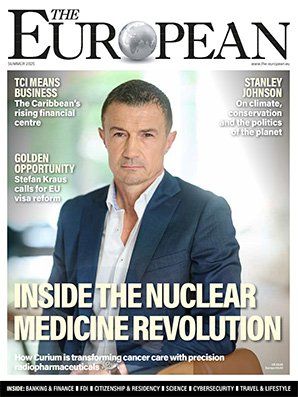Coronavirus: managing the market impact

Article by Giles Coghlan, Chief Currency Analyst at HYCM
At the beginning of 2020, it looked as though the global economy had entered a period of sustained recovery. News of a decisive Conservative party victory in the UK’s December 2019 general election triggered a surge of investment activity, with investors rallying to UK-based assets. The value of the FTSE 100 and FTSE 250 had increased cumulatively by £120bn in the days following the election and Prime Minister Boris Johnson was also able to pass his EU Withdrawal Bill through parliament. For a brief moment, it looked as though confidence had finally returned to the UK market.
However, a few weeks into 2020 the notion of relative global stability was hampered by a collection of political, economic and social events – the most recent and pressing of which is the coronavirus pandemic. We are only just beginning to understand the implications of the outbreak on society as a whole. Aside from the obvious health complications, the imposition of quarantine measures in places like Italy and the US is having a dramatic impact on the financial markets. In short, Covid-19 has disrupted the global supply lines of production, threatened national GDP growth and brought about fears that we could be facing a global recession.
The immediate impact
Understanding the immediate impact of coronavirus helps illustrate the severity of its disruption. The second week of March saw the biggest fall in the global stock market since the 2008 financial crash, as Brent – an international oil benchmark – experienced its largest drop since the Gulf War. On Wall St, futures trading was suspended on 9 March, minutes after the market opened when they dipped below the 5% daily maximum.
Analysts have been quick to explain how the economies of countries suffering most from the virus will be affected in the future. Schroders, for example, revised down its economic growth prediction for China in 2020 by 0.5%, whilst predicting that the global economy will grow 0.3% slower this year. They also suggest that Japan and Italy – both of which are suffering from significant outbreaks – may be headed for a major downturn. What’s more, Italy’s quarantine measures are already having an evident impact on its tourism industry. Looking to the UK, the outlook is more positive, although the possibility of a mass outbreak remains. The picture as we know, can change very quickly.
What can history tell us?
The spread of Covid-19 can be compared to that of SARS and MERS – and other strains of coronavirus that spread through China in 2003 and the Middle East in 2015/16 respectively. At the moment, Covid-19 appears to have a lower mortality rate than either SARS or MERS, with a mortality rate of around 4% – primarily made up of the elderly and those with weakened immune systems. Moreover, following the initial outbreak of SARS, the financial markets that were affected were able to bounce back and recover soon after the virus was contained.
There are, of course, marked differences between the Covid-19 and SARS experience. Covid-19 has affected far more people and has spread to many more countries. The outbreak of SARS in November ™ 2002 also did not begin to have a financial impact until March 2003, reflecting a global economy that was nowhere near as interconnected as it is today. In essence, this means that market shocks in China can now directly impact the European and North American economies.
What should wealth managers be doing in the current climate?
At the moment, it is important for those involved in the financial services not to panic. The most sensible approach remains the same regardless of the global crisis at hand – do not turn a temporary decline into a permanent loss. What’s more, restructuring an investment portfolio to take advantage of short-term gains or safe-haven assets like gold incurs some risk. Given just how volatile and unfamiliar the situation is at the moment, it makes sense to closely follow daily developments while adhering to a long-term investment strategy that acknowledges the reality of the current situation.
This leads to a broader point concerning mindset: wealth managers should see the spread of the virus as a significant, but not yet disastrous, hit to global economic confidence. The situation is developing daily, making it nigh on impossible to predict the state of the markets a week, let alone a month, in the future.
In the coming months, we are likely to see further economic shocks as governments impose increasingly impactful quarantine measures. This is to be expected given Covid-19 has yet to be contained. Importantly, history has demonstrated that the global market is a resilient entity that is able to recover from unforeseen shocks over the long-term. While a serious health issue, Covid-19 has to be addressed and managed rationally. Only then markets will be in a better position to recover from the losses that have been incurred so far this year.
Some investors will start averaging back into the stock markets by buying in increments over the second half of the year. Only time will tell how long Covid-19 will continue to devastate, but history tells us it will be brought under control, and in the long-term we will be stronger for it.
High Risk Investment Warning: CFDs are complex instruments and come with a high risk of losing money rapidly due to leverage. 67% of retail investor accounts lose money when trading CFDs with this provider. You should consider whether you understand how CFDs work and whether you can afford to take the high risk of losing your money. For more information please refer to HYCM’s Risk Disclosure.
Further information


